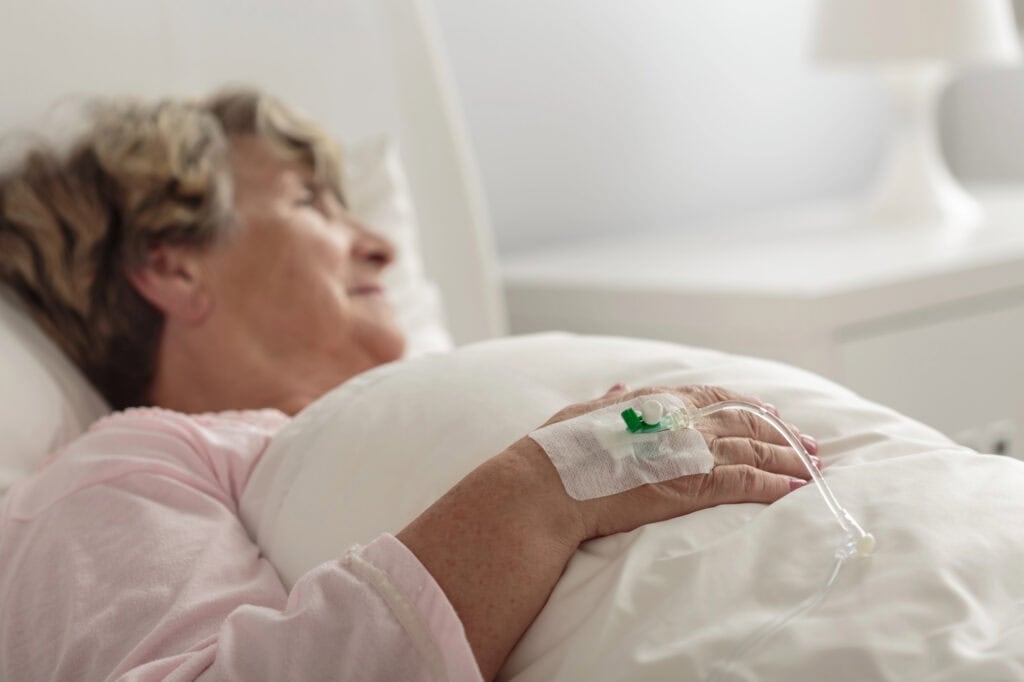The Leiden Bio Science Park is the largest life sciences hub in the Netherlands and home to 150 Life Sciences & Health (LSH) companies — from Dutch start-ups to multinationals. One of these start-ups is Idris Oncology.
Led by Hans Peter Mulder and Peter Wiegman, Idris Oncology is a medical device company specialising in cancer diagnostics.
The company focuses on developing a device similar to a “fishing wire” to capture cancer DNA in the bloodstream. This allows for more accurate diagnostics, especially when tumours are small or nearly gone after treatment.
Pretty impressive feat, huh? That’s what I thought as well, so I sat down with Hans Peter to learn more about his work.
How did Idris Oncology get started?
During Hans Peter’s master’s studies, alongside his co-founder Peter, the pairs’ shared curiosity led them to build a micro 3D printer capable of producing objects as small as a cell nucleus.
Initially a fun side project, the costs quickly added up. “It was maybe €6000, which is a lot for a student,” Hans Peter says. To recover their investment, they started a company — but soon realised there wasn’t a sustainable business case for micro 3D printing.
Two years (and some hurdles and side-quests) later, the two were looking for a new challenge. “We had some experience with entrepreneurship — mostly at failing — but we wanted to give it another go,” Hans Peter laughs.
READ MORE | 5 Dutch start-ups that give us hope for the future
Hans Peter and Peter “started exploring problems to tackle, asking which ones [they] could solve. It took a long time to crystallise and involved a lot of conversations with doctors.”
One key moment in that journey was discovering a significant issue in cancer diagnostics — the low concentration of cancer biomarkers in the bloodstream.
It was during this period that their focus shifted, and Idris Oncology was born.
What does Idris Oncology do today?
“What we develop is basically a fishing wire to capture cancer DNA in your bloodstream,” Hans Peter summarises.
“You can imagine trying to find a fish in a river by scooping water out with a bucket. You’re not going to find any fish in your bucket, but you know they’re in the river.”
“Rather than taking a bucket of water out of the river, we use a fishing wire,” he explains. This allows them to collect a larger sample of cancer DNA, providing more accurate diagnostics — especially in cases where tumours are in their early stages or have nearly disappeared after treatment.

For now, Idris Oncology is particularly focused on the latter: revolutionising how cancer patients are monitored post-treatment. “We can find the cancer when it’s almost gone,” Hans Peter explains, noting that their wire could help answer critical questions about when to stop chemotherapy.
Brilliant idea, right? Unfortunately, it’ll take a while before the product can be sold. Hans Peter explains:
“Developing any invasive medical device is a lengthy process, especially as we fall under the highest regulatory class. On average, this can take around ten years, and we’re just now reaching the stage where we’re collecting the necessary paperwork to start human testing.”
What’s it like to work in the Leiden Bio Science Park?
The Leiden Bio Science Park is the biggest life science cluster in the Netherlands. First and foremost, this brings Idris Oncology a lot of legitimacy.
“I know that sounds boring,” says Hans Peter”, but when you tell venture capitalists or doctors in the States that you’re from Leiden, it’s met with a different reaction than mentioning the big names associated with this park, like Johnson & Johnson.”
But besides that, there’s also the human aspect of being at the Leiden Bio Science Park: “It’s the emotional support that’s often underrated.”
For example, “When I complain to friends or family about the challenges I face, they often don’t understand. But when I talk to someone in the same boat here at LBSP, they get it. They know the frustrations and the struggles. That shared understanding really helps.”
The same sense of community exists within Idris Oncology itself. “We’re a small team, so when you have a problem, you just come to me directly. Decisions are made quickly, and your work has a tangible impact,” says Hans Peter.
“I’ve never liked the word ‘impact’ because it’s often vague. But yes, here, you have an impact. Your work directly influences the decisions we make. If you run an experiment, that data could be why we pass FDA approval. If you show us a graph, Peter and I might decide to go left because of what you discovered. It’s very tangible.”
For Hans Peter, working at Idris Oncology means seeing the direct results of your efforts. “Here, impact isn’t just a word — it’s the colour of the product, its chemical composition, the way it looks. It’s all very real,” which makes working at Idris Oncology so different.
In a perfect world, what would be your wildest dreams for the future of Idris Oncology?
“I don’t spend much time thinking about that,” Hans Peter laughs. But he has an idea: “There’s not yet a word for it, but the closest I’ve come to describing what I dream about is something like ‘biological awareness.’”
“There’s so much happening inside our bodies that we’re completely unaware of. We don’t know what our brains, our hearts, or any of our organs are really doing. The frustrating part is that we often get punished for decisions we made decades ago, like eating too much sugar for years and then developing diabetes, without our bodies ever warning us along the way.”

He continues, “We don’t get feedback from our bodies in real-time, which means we’re not always able to make the right choices.”
“I want to see a future where we can detect more subtle things, like an increase in a protein that indicates neurodegeneration. The same idea could be applied to any chronic disease. We’re always too late in treating these things because we’re missing the early signals.”
He envisions a world where an implant could monitor key biomarkers. “Let’s say when you turn 50, you get an implant that monitors for early signs of cancer. At 52, it might alert you to a small signal that’s often a precursor to cancer, prompting you to go for a screening. By detecting it early, when the tumour is still small, it’s much easier to treat. That’s true for all diseases — we just need to get the early warning signals.”
What do you think about Idris Oncology’s journey? Share your thoughts in the comments!
